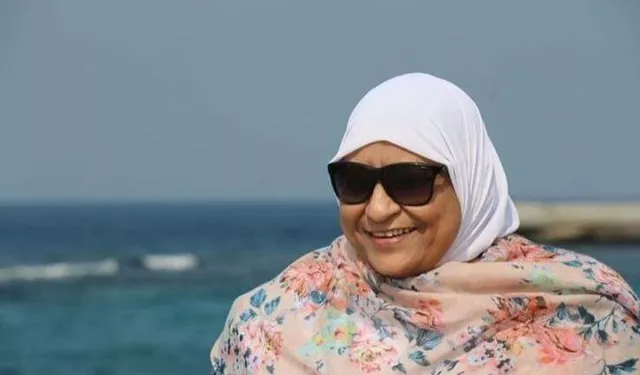Human rights organizations called Sunday for the immediate and unconditional release of lawyer Hoda Abdel Moneim, citing the severity of her medical condition and the lack of legal grounds for her continued pretrial detention. They also pressed for her transfer to a specialized medical facility.
A joint statement signed by 23 bodies quoted her lawyer as saying that Abdel Moneim suffered two consecutive heart attacks on Aug. 23 and Aug. 30. Neither her family nor her lawyer was informed at the time; they only learned of the incidents during a prison visit on Sept. 6.
66-year-old Abdel Moneim, a former member of Egypt’s National Council for Human Rights, was arrested at her home in 2018. She spent more than four years in pretrial detention before being sentenced to five years in prison in case No. 1552 of 2018, commonly known as the Egyptian Coordination for Rights and Freedoms case. The ruling was final and unappealable. She was convicted of “joining a terrorist group” but acquitted of financing it.
Her sentence expired on Oct. 31, 2023. However, she was not released; instead, prosecutors filed new charges that rights groups characterized as unlawful and dismissive of judicial authority.
Organizations including the Egyptian Initiative for Personal Rights, the Egyptian Commission for Rights and Freedoms, the Arab Center for the Independence of the Judiciary and the Legal Profession, the Council of Bars and Law Societies of Europe (CCBE), and the International Bar Association’s Human Rights Institute (IBAHRI) signed the statement. They expressed grave concern over her deteriorating condition.
According to the statement, Abdel Moneim suffers from cerebral arterial narrowing that left her bedridden for 12 days and unable to move. She also has chronic deep vein thrombosis with multiple pulmonary embolisms, requiring consistent treatment to prevent recurrence. The statement warned that any further clot migration could be life-threatening.
Additional complications include severe hypertension, acute joint and spinal inflammation, and the urgent need for knee replacement surgery. Her kidney function has sharply declined: the left kidney has ceased functioning, and the right shows signs of reflux, the statement said. She has also experienced angina while in detention. The organizations attribute these conditions to systematic medical neglect.
On May 14, Cairo’s Second Terrorism Circuit court denied her release despite her arriving in an ambulance for the hearing. The court extended her detention and postponed her trial in another case involving allegations of “joining and financing a terrorist group,” her husband and lawyer Khaled Badawy told Al Manassa.
Her family submitted a formal request for medical release on Sept. 9. Earlier, on Aug. 13, they filed a complaint with the National Council for Human Rights, urging immediate action.
The rights groups argued that her continued detention lacks a legal basis, noting that she has been recycled into two new cases—Nos. 800 of 2020 and 730 of 2020—on identical charges to the 2018 case. They described this as a violation of fundamental fair trial guarantees.
The statement emphasized that Abdel Moneim’s ordeal is not an isolated case but part of systemic violations against political opponents and human rights defenders in Egypt.
The organizations called on Egyptian authorities to ensure that all detainees receive full healthcare in line with both constitutional obligations and international standards.
